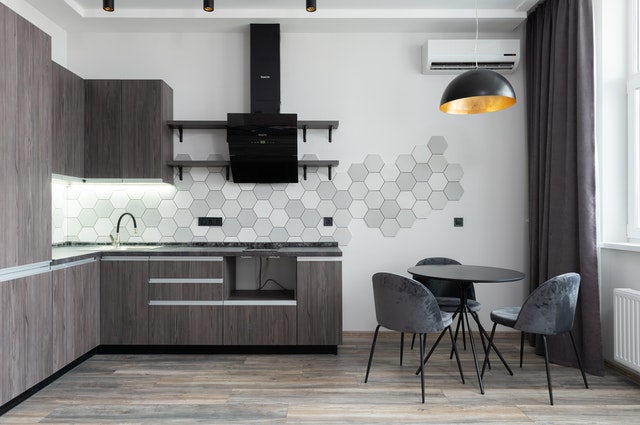Summer is the most stressful time of year for air conditioners, as they have to work overtime to keep your home cool. A system breakdown is most likely to occur during the summer, so it’s important to know the top signs that your air conditioner needs replacement. The summer months are the busiest for AC system breakdowns, so it’s crucial to know the warning signs to save yourself time and money. Follow these tips to determine if it’s time for an AC replacement and get a new chillwell air cooler:
Signs It Needs to be Replaced
If your air conditioner doesn’t produce cool air or is running too warm, it may be time for an upgrade. There are several causes for this, including a compressor problem, low refrigerant, or a broken air duct. When you notice any of these symptoms, it’s time to contact a qualified HVAC technician. If you suspect that your air conditioner needs replacement, a visit to an HVAC technician will provide an accurate diagnosis.
Noises: If you’re listening for the sound of your AC fan or a grinding sound, it’s probably time for a replacement. These noises can indicate worn motor bearings, a broken belt, or even a malfunctioning thermostat. The noises can lead to a more expensive repair or a complete replacement. If the AC is not cooling the room properly, it may need lubrication. If you’re experiencing damp spots on the floor, the problem is more serious and could be caused by a leaky refrigerant or a dirty condensation conduit. This can also lead to mold and mildew growth.
During the summer, the heat can put a lot of strain on your air conditioner. The system must work overtime to keep your home cool, and can even begin to malfunction without any warning. As a result, summertime is the time when most air conditioning system failures occur. With that in mind, it’s important to learn about these 10 signs that your air conditioner needs to be replaced. By keeping an eye out for these signs, you can avoid major problems and save money.
Besides noise, your air conditioner may be leaking water. If the moisture is discolored or appears to be leaking water, it may be condensate. The most serious case of a leak is a refrigerant leak, which is highly poisonous. If you notice a leak of condensate, you must repair it immediately. You should also check the drain line to ensure that it is not broken or blocked.
Cost of Repairing or Replacing an Air Conditioner

The cost of repairing or replacing an air conditioning unit varies widely. In most cases, a warranty covers the cost of repairing or replacing a component, but if a warranty isn’t available, homeowners may need to pay the full cost of the replacement. A thermostat costs from $20 to $40, and a wifi-enabled thermostat may cost $100 or more. Another component that can incur a high bill is the capacitor, which stores the electric charge needed to start the system.
The cost of repairing or replacing an air conditioner depends on the type of unit and the severity of the problem. While repairing an air conditioning unit is inexpensive, replacing an air conditioner can run you upwards of $1,500. A compressor repair, for example, costs an average of about $650 to $1,200. The cost of replacing a compressor depends on the type of leak and the cost of the refrigerant.
For a relatively cheap repair, the air conditioning unit’s circuit board may need to be replaced. This component is an electronic component that runs the air conditioner. Faulty circuit boards can result in significant malfunctions and incorrect thermostat readings. If this part is failing, the unit will not turn on or will overheat. If it is not replaced, the AC will no longer function properly. A new circuit board will cost around $200.
The cost of repairing or replacing an air conditioner may vary according to the type of repair needed, the time of year, and the technician’s expertise. However, it’s worth keeping in mind that AC repair rates are cheaper during spring and fall when the weather is warmer. Even if you’re a handy homeowner, it’s best to call a professional if you suspect that the problem is related to the refrigerant, which can cause severe illness and even death.
Weak Airflow
One of the first signs that your air conditioner is about to give up the ghost is weak airflow. This problem can be the result of several problems, including clogged ducts or a malfunctioning fan. In any case, you should get your air conditioner checked as soon as possible to avoid further damage and possible motor burnout. Here are some symptoms of weak airflow:
Poor airflow can be a sign that something is wrong with the thermostat or batteries. Clean the cover of the thermostat and look for obstructions. Occasionally, the thermostat can bend and cause issues with airflow. If you notice any of these symptoms, it’s time to get a new air conditioner. You can find out what’s causing the weak airflow by contacting an HVAC professional.
If you notice that the evaporator coils are frozen, it could be because of a dirty air filter, a clogged vent, or a low refrigerant level. Having your air conditioner checked by a professional can avoid further issues and ensure that your system operates efficiently. You may also notice that the compressor isn’t working as well as it once did.
Another sign that your air conditioner needs a new compressor is weak airflow. Weak airflow will make the AC ineffective. It might also be caused by a malfunctioning blower or compressor. You should contact an HVAC technician immediately if you notice any of these problems. If they don’t address the problem, it might be time for a new air conditioner. You should also consider getting a new furnace if your air conditioner is showing any of these symptoms.
Energy Bill
An air conditioning unit uses about six percent of all electricity produced in the United States, a whopping $29 billion annually. In addition to that, American households will spend about $422 on their electricity bill this summer, or $141 a month, running the AC to cool the home. So when you’re considering buying a new air conditioning unit, keep these costs in mind. It’s possible to lower your energy bill without busting your budget.
Buying a new air conditioning unit can reduce your utility costs by hundreds of dollars a year. Not only are new units more energy-efficient than their older counterparts, but they’re also quieter than old ones. That means you’ll be able to spend more time relaxing in your home and not worry about the noise of the old unit. A new air conditioner system also provides improved airflow, which means that you’ll have better indoor air quality.
Choosing a high-SEER (seasonal energy efficiency rating) air conditioner will save you money on your utility bills. While a high SEER air conditioner will cost you more upfront, the lower operating costs will eventually reduce the overall cost of the system over time. Higher SEER ratings are especially beneficial if you live in a warmer climate zone. It will also reduce your electric bill by around $42 a year.
Upgrading your air conditioning unit is an excellent way to reduce your energy costs. Modern energy-efficient air conditioning units are highly efficient and will save up to 40% of your cooling costs. By integrating automation into your home, you can improve the indoor climate while saving money on your energy bill. These steps will also improve the life span of your equipment, which is crucial for lowering energy bills. So, when you’re ready to buy a new air conditioning unit, keep these tips in mind.
Poor Indoor Air Quality
If you notice an increase in indoor humidity, this could be a sign of poor indoor-air quality. It is important to have your air conditioner checked by a professional if the levels of humidity in your home are too high or too low. Poor indoor-air quality can even make it difficult for you to sleep. In fact, studies have shown that 80% of us experience sleep problems as a result of pollution.
The source of poor indoor-air quality can be the lack of proper ventilation. Improper ventilation allows contaminants to build up and create unhealthy conditions in your home. The National Institute for Occupational Safety and Health has identified inadequate ventilation as the primary cause of indoor-air investigations conducted in both private homes and offices. Proper ventilation is crucial to good indoor-air quality. If your air conditioner is causing these problems, you might need to replace it.
If you aren’t a specialist in heating and air conditioning, it can be difficult to identify the cause of poor indoor-air quality. You may be experiencing symptoms of other issues as well, such as headaches and watery eyes. Regardless of whether these symptoms are related to the air quality of your home, you should consult with a professional to determine if you really need a new air conditioner.
You should also check for common pollutants that may be contributing to poor indoor-air quality. Some of these pollutants are toxic to your health, such as mold and radon. However, there are steps you can take to reduce the risk of these pollutants and prevent them from returning. Read the Consumer Product Safety Commission’s guide to indoor air pollution. You can also check the health risks of your family by checking the air quality of your home.

